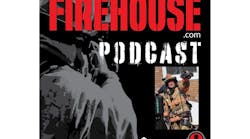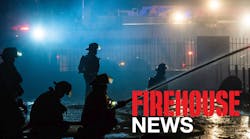Municipal leaders in the region are bracing for higher insurance costs because of a year-old state law that enables volunteer firefighters to collect benefits if they develop cancer after being exposed to carcinogens at fire scenes.
At least two insurers that specialize in services for municipalities have decided to drop worker's compensation coverage for unpaid firefighters.
Officials in Penn, Hempfield and North Huntingdon townships said they might have no choice but to sign up for coverage through the State Workers' Insurance Fund (SWIF) at a significant increase from 2012 premiums because of a lack of private-insurer alternatives. The rates might double in Penn Township and Hempfield.
In the case of Penn Township, SWIF quoted an annual price of $64,571, which would be a $34,000 increase to cover five departments. Solicitor Les Mlakar speculated last week that the price could increase again in 2014, perhaps by as much as 25 percent.
He told township commissioners not to expect help in paying for coverage.
"You're not going to get any funding to support this from any source except your local taxpayers," Mlakar said.
Known as the Firefighter Cancer Prevention Act, the law designates cancer as an occupational disease for paid and volunteer firefighters. A firefighter who serves for at least four years has as long as 11 1/2 years after leaving service to file a claim. That's twice as long as the typical window for a worker's compensation claim.
Benefits may be paid if a firefighter can establish that he or she was exposed to certain carcinogens at fires or incidents involving hazardous materials.
Despite bipartisan support for a previous version of the bill in 2010, Gov. Ed Rendell vetoed it because he said it would be too costly to municipalities.
A revised bill sailed through the General Assembly last year, with Gov. Tom Corbett signing it into law.
State Rep. George Dunbar, R-56, said he anticipated premiums might increase, but he said the figures cited by Penn Township "seem awfully excessive." He stood by his vote but said he would try to work with his communities on the cost.
"Anybody who's taking the risk that (firefighters are) taking, we need to make sure that the worker's compensation is fair for what they're giving for free," he said.
PennPRIME Insurance Trust, a service of the Pennsylvania Municipal League, and MRM Trust, which was created by the Allegheny League of Municipalities, are ending their worker's compensation coverage for volunteers. PennPRIME was Penn Township's insurer; Hempfield and North Huntingdon used MRM.
Even before the law took effect, the costs for covering volunteer firefighters was "significantly more" than the premiums PennPRIME collected, said Bob Anspach, insurance services director.
One of the insurer's issues was the doubling of the window for filing claims, he said. Unlike health insurance, worker's compensation covers lost wages, rehabilitation costs and death benefits.
"What you're doing there is you're adding something that's brand new and very expensive and you've had no opportunity to collect any premium for that," Anspach said.
David Sanko, executive director of the Pennsylvania State Association of Township Supervisors, said the law isn't much different from ones enacted in other states. The law levels the playing field for firefighters in Pennsylvania, he said.
Sanko said he hasn't heard about a rush of claims coming in since the law took effect a year ago.
"I guess they're being like a typical insurance company and not paying anything out," he said.
North Huntingdon Manager John Shepherd did not have an estimated increase, either, but said the township's best option might be SWIF.
"Usually the state fund is a fund of last resort," he said.
In Penn Township, the only way to reduce the premium would be to create a fire council featuring a board of directors and bylaws governing all five of the township's departments, Mlakar said. In that scenario, SWIF would charge a $33,275 premium instead of the $64,571 it quoted for the five departments, he said.
But he acknowledged that arrangement wouldn't be popular among firefighters because the individual departments could lose some autonomy.
"I don't know how government is going to be able to sustain these kinds of mandated expenses without something else, (such as) a consolidation or a merger," he said.
Joe Gibbons, president of the Harrison City Volunteer Fire Department, said the topic of a merger comes up occasionally in the township, but there haven't been any in-depth discussions.
If the township were to initiate merger talks, firefighters would want to hear about how much power the township would want over a joint department, Gibbons said.
"I don't know how you save money by going with just one name when you still have five departments," he said.
Copyright 2012 - Tribune-Review, Greensburg, Pa.
McClatchy-Tribune News Service





